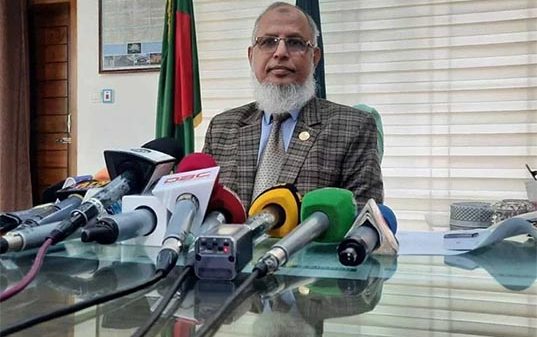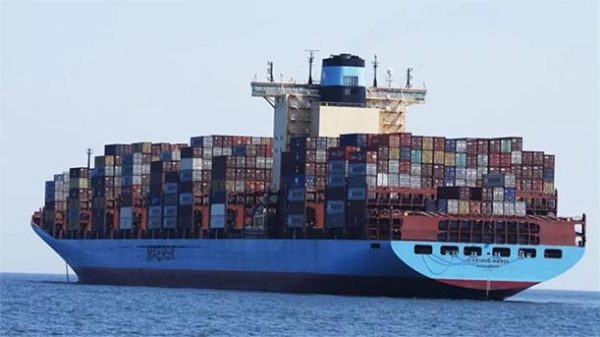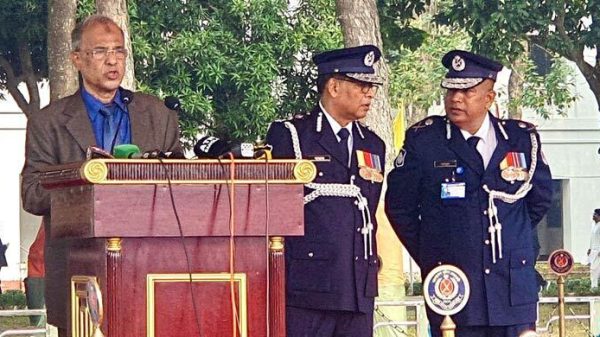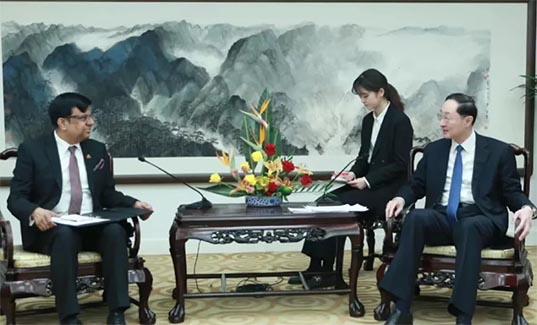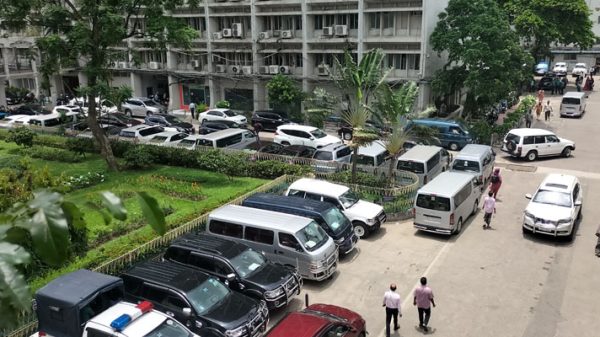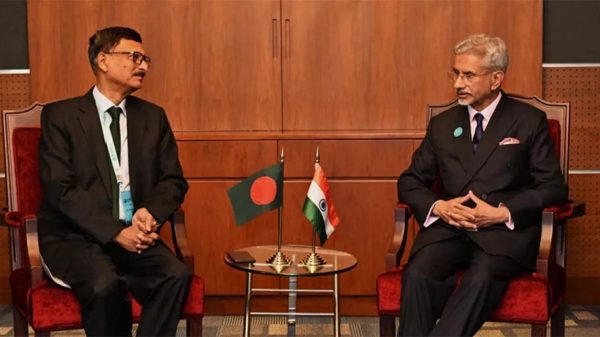Reduced regulatory burdens, documentation processes to foster export diversification: Discussants

- Update Time : Monday, 4 December, 2023, 04:43 pm
- 135 Time View
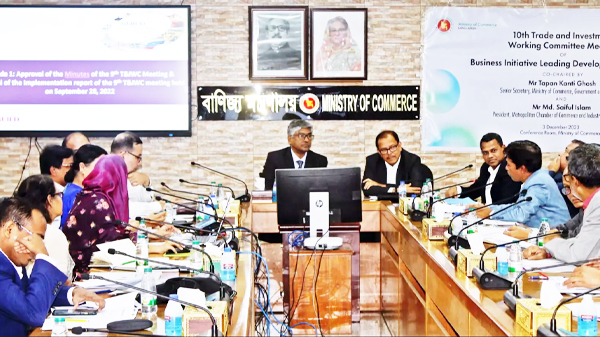
Online Desk: Speakers at a discussion highlighted the potential of diversifying exports in the markets of the UK and China; and emphasised the ease of doing business and reduced regulatory burdens and documentation processes.
The meeting was co-chaired by senior secretary, Ministry of Commerce, Tapan Kanti Ghosh and President of the Metropolitan Chamber of Commerce and Industry (MCCI) Md Saiful Islam.
The meeting held at the conference room of MoC, reiterated attracting new investments, fostering technological advancements, and promoting diversified product exports, particularly in the key markets where market access benefits are available.
The 10th Trade and Investment Working Committee of BUILD was held on December 3 where two policy papers titled “DFQF Market Access to China-Policies and Measures to Increase and Diversify Exports” and “UK’s DCTS: Policy Measures to Escalate Export to the UK” were presented.
The Ministry of Commerce (MoC) and BUILD jointly organised the meeting.
BUILD CEO Ferdaus Ara Begum reported on the progress of the 9th meeting, highlighting the implementation of eight out of 27 proposed reforms, with nine currently in progress.
Acknowledging the collaborative efforts of the MoC, Local Government Division, and Register of Joint Stock Companies (RJSC), she expressed gratitude for the successful implementation of 5-year trade licences, Export and Import licences and the initiation of online Trade Licence services and information dissemination through websites of RJSC etc.
The MOC Senior Secretary emphasised the need to reduce documentation requirements, digitise trade licences, review the imposition of income tax on trade licences, said a media release issued on Monday.
Dr Malay Chowdhury, Additional Secretary, LGD, informed the meeting that five documents are presently required to apply for a trade licence.
During discussions, it was proposed to streamline the trade licence document requirements to three: NID/birth certificate, nature/types of business, and proof of business ownership.
The Registrar of RJSC was informed that RJSC is working on complete automation of its services. A meeting will be held soon to finalise business categories for simplifying model MOA.
Besides, RJSC is in the process of integrating with all concerned organisations like NBR, MOC, and Bangladesh Bank through software upgrades.
In response to BUILD’s proposal, the NBR Joint Commissioner informed that the renewal of the Bonded Warehouse Licence will be three years instead of two years for all sectors, which NBR will gazette soon.
The MoC endorsed the formulation of a Subcontracting Policy for all sectors, like RMG for supporting non-RMG exports.
While presenting the policy paper on ‘DFQF Market Access to China’, the Senior Research Associate of BUILD shared the identified potential sectors, which are leather and leather goods, fish and processed food, plastics, aluminium, boilers, copper, optical goods, wood and wood products, miscellaneous chemical products wigs, and human hair and RMG for the Chinese market.
It has been identified that about 137 products were exported, which are not included in the 98% DFQF list.
The export of these 137 products was USD 211 million or 31% of the total export (USD 677 million) to China, of which 34 products (USD 128.30 million) from Oven RMG. Due to a lack of compliance and standards, low technology, and a lack of post-export services, exports could not be increased.
The meeting highlighted that China wants prime and fashion-oriented products, which are lacking in our export basket. On the other hand, China is mostly interested in importing primary products from Bangladesh, which has less value addition.
In that respect, investment-led exports should be encouraged. Bangladesh presently exports mostly finished products; it needs to penetrate intermediate goods to be able to integrate with the global supply chain.
The senior Secretary appreciated the study findings. Following the emerging situation after LDC graduation, he suggested further analysis of the duty-free scenario as per the APTA list to get a clear picture of the preferential export of products from Bangladesh.
He suggested organising sectoral dialogues to leverage duty-free opportunities offered by China.
BUILD CEO Ferdaus Ara Begum shared insights from a study on the UK’s DCTS (Developing Countries Trading Schemes), emphasising the benefits it offers to LDCs, including Bangladesh under Comprehensive Preference (CP).
Bangladesh will enjoy Enhanced Preference (EC) after the Graduation and transition period under this scheme, which is more liberal than EU GSP+. In this study, BUILD identified potentials of high value-added RMG, agro and agro-processed products, leather goods, bicycles, plastics, toys, batteries, furniture, pharmaceuticals, etc., for exports to the UK.
The presentation highlighted the situation of the pre- and post-graduation situation of utilising the benefits of DCTS, Rules of Origins and Product Specification Rules (PSR) and cumulation with all DCTS and UK EPA countries, in a total of about 90 countries.


